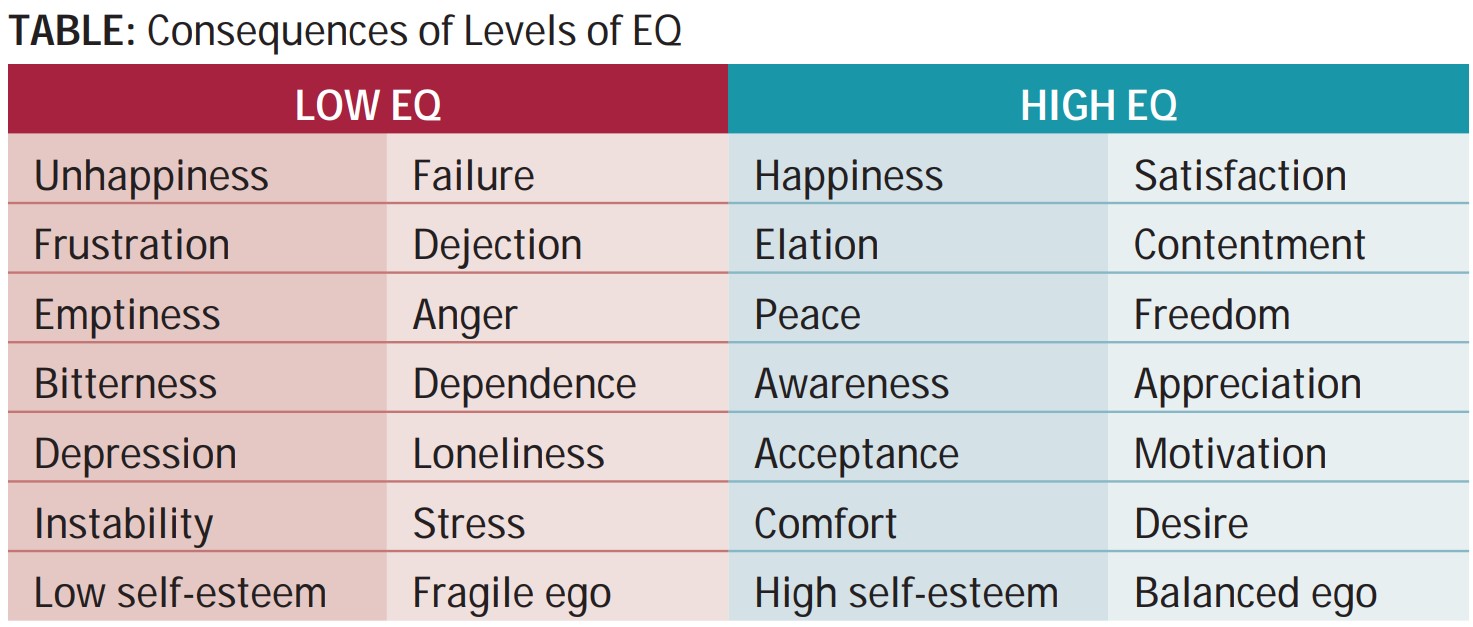YOU may not be able to choose many of the events in your life, but you can choose how to react to them. You are responsible for your thoughts, emotions and consequential actions. Your emotional response, as is generally believed, is not your destiny but your own conscious decision. How you use your emotions to tackle day-to-day problems is what reflects the amount of EQ you have. Since EQ is important, it is necessary to know the consequences of having a low or high EQ.
Consequence of high EQ is the feeling of general happiness. When you have a high EQ, you are more likely to recognise the source of your emotions, and have the confidence to take appropriate actions, thus increasing long-term happiness. You will set your own standards by closely examining your own values and beliefs. You will lead your life according to your own terms, rather than be governed by society’s norms. Finally, the higher your EQ, the more you will assume responsibility for your own happiness, and depend less on society. Research on EQ has revealed that people high on EQ are happier, healthier and more successful in their relationships. They strike a balance between emotion and reason, are aware of their own feelings, are empathetic and compassionate towards others and also show signs of high self-esteem.
Consequence of low EQ is the feeling of general unhappiness. If what you can’t deal with upsets you easily, and if you are uncomfortable with yourself, you need to check your EQ. The benefits of being aware of how you feel from an interpersonal point of view will not be available to you if your EQ is on the lower side. You may not be able to choose a friend who is best suited to you because you are not aware of your own inner emotions. If your EQ is not high, it is likely that you will choose a friend who is not well suited to you. You may even choose as friend a person who makes logical sense but who just cannot make you feel ‘good’. The cost of this may be very high. Eventually, you may find excuses to end such a friendship.

We may conclude by saying that emotional intelligence is the capacity to create positive outcomes in your relationships with others and with yourself. Positive outcomes include joy, optimism, and success in work, school, and life. Increasing emotional intelligence (EQ) has been correlated with better results in leadership, sales, academic performance, marriage, friendships, and health. Learning some emotional skills such as expressing emotions, identifying and labelling emotions, assessing the intensity of emotions, managing emotions, delaying gratification, controlling impulses, reducing stress and knowing the difference between emotions and actions can make you a star performer.
Dr Dalip Singh, a 1982-batch IAS officer of the Haryana cadre, has a PhD in psychology from the University of Delhi. He can be contacted at www.eqindia.com
















































